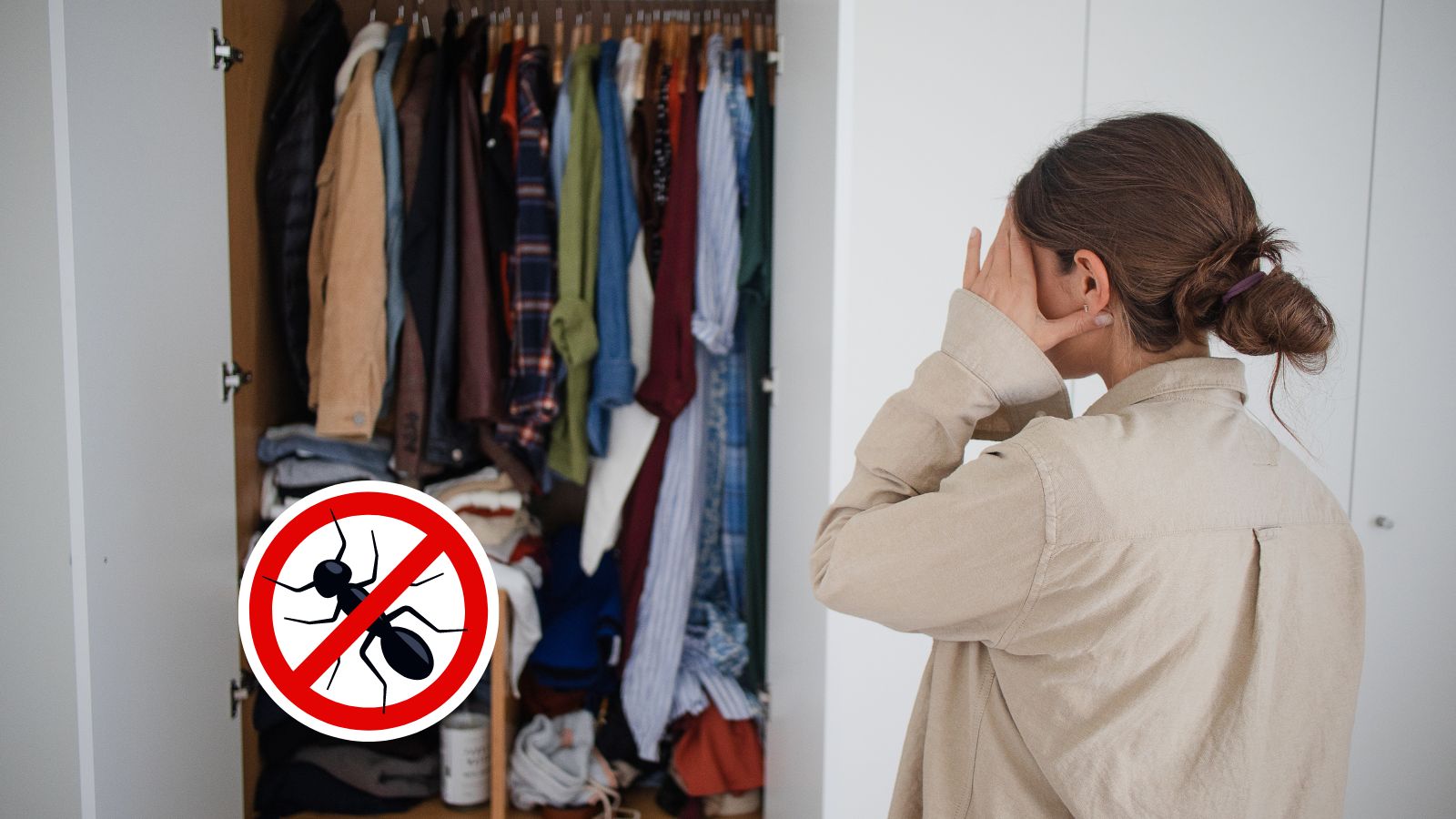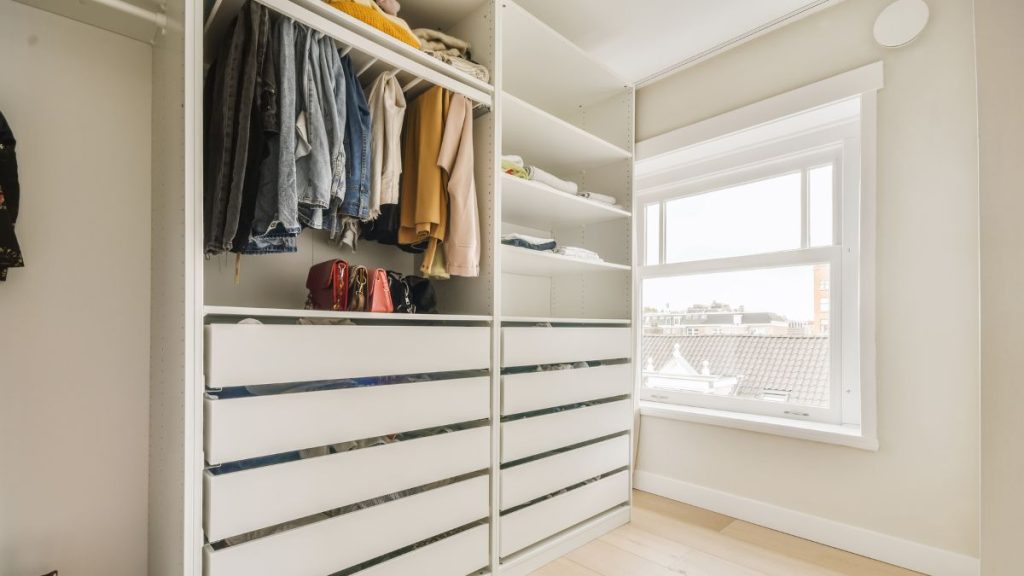Help! Why Are Ants Suddenly Infesting My Closet?

Discovering ants in your closet can be an unexpected and unwanted surprise.
These tiny intruders often seek out your indoor spaces for food or shelter.
Understanding why they’ve targeted your closet and what they’re searching for is the first step in addressing the issue.
Efficiently dealing with an ant infestation involves more than just shooing them away; it requires a strategy to prevent their return.
We’ll explore practical tips to rid your closet of ants and keep it pest-free, ensuring your private space remains just that—yours.
Reasons Ants Might Infest Your Closet
Your closet may seem an unlikely place for ants to be interested in, but several factors could be attracting them.
Food Sources
You might not realize it, but your closet could be a goldmine for ants.
They are drawn to even the smallest food particles, such as crumbs or spills that might have found their way into your space.
Even pet food or snacks that are not properly sealed can invite ant colonies in search of a feast.
Water and Moisture
Ants require water, and any traces of moisture from leaky pipes or condensation can draw them to your closet.
Carpenter ants, for example, are particularly attracted to damp environments as it provides the perfect condition for their nests.
Nesting Materials
Closets are full of materials like fabric and paper, which some ant species, like the odorous house ants, may find ideal for building their nests.
They may also nest in wall voids and expand their colonies into adjacent spaces.
Temperature
Extremes in weather can send ants indoors in search of shelter.
Your closet offers a controlled environment that protects these insects from too hot or too cold conditions outside.
Access Points
Ants are excellent at finding entry points into your home.
They can come in from outside through small cracks around windows, doors, or baseboards and follow pheromone trails laid by other ants.
Signs of an Ant Infestation
If you’re noticing a consistent line of ants marching along your closet’s baseboards, walls, or shelves, it’s a red flag that you might be hosting an unwanted colony.
Winged ants making an appearance can point towards a growing nest, as these are typically the reproductive members seeking to expand their territory.
Watch for small piles of debris in your closet—this could be a sign of ants establishing a nesting site.
A distinctive musty smell is another tell-tale symptom, as ants communicate and mark paths with pheromones.
Inspect your clothes and closet woodwork for damage. With carpenter ants, for example, you may find your wood items have been hollowed out.
If you spot these unnerving signs, consider setting up ant baits and traps to address the issue early and prevent further invasion.
Identifying the specific species involved can also guide you towards more effective solutions.
Getting Rid of Closet Ants

If you’ve noticed ants in your closet, it’s crucial to take prompt action to maintain an ant-free environment.
Begin by using a vacuum cleaner to remove any visible ants and their trail, a invaluable step in disrupting the ant’s scent path and preventing others from following.
Afterwards, it’s a good idea to give your closet a good clean. Sweeping up or vacuuming out any debris that might be acting as a food source for them is a great start.
You might also want to wipe down the surfaces with warm, soapy water or vinegar, which not only cleans but can disrupt their scent trails.
Inspect your closet for tiny cracks or openings that could serve as entrances for ants.
Sealing entry points with caulk prevents new ants from entering.
Traps and baits containing borax can be effective in eradicating ants; they carry the bait back to their nests, which ultimately kills the colony.
These can be placed inside your closet or along baseboards.
To further protect your space, sprinkle diatomaceous earth along entry points—it’s a potent natural deterrent.
Additionally, non-toxic ant repellents, which can include essential oils such as peppermint or cinnamon, are good options as they create a barrier that ants avoid.
For stubborn cases, especially if you suspect carpenter ants, which may cause structural damage, it’s wise to contact professional pest control services.
They can offer heavy-duty solutions and expert advice to keep your closet and home ant-free.
Preventing Ants from Returning
To ensure ants don’t make a comeback in your closet, it’s essential to stay proactive and maintain a hospitable environment.
Here are some strategies:
- Seal any new openings promptly. Check for gaps and close them to block ant access.
- Dry Your Closet: Ants seek moisture, so keep your closet free of dampness with a dehumidifier or a properly ventilated room.
- Clothing Storage: Use airtight containers for storing seldom-worn clothes and paper items.
- Use natural repellents: Oils like peppermint, tea tree, and lemon create a barrier ants avoid.
- Tidy Your Closet Regularly: Ensure clothes and fabrics are clean; vacuum to remove crumbs and residues.
- Strategic Arrangement: Hang clothes closely to prevent nesting.
- Add cedar blocks: Their scent is a natural deterrent.
- Diatomaceous Earth: A fine line of this dust beneath closet baseboards acts as an invisible fence against ants.
By adopting these measures, you’ll create a space that’s less inviting to ants and helps safeguard your belongings from unwelcome guests.